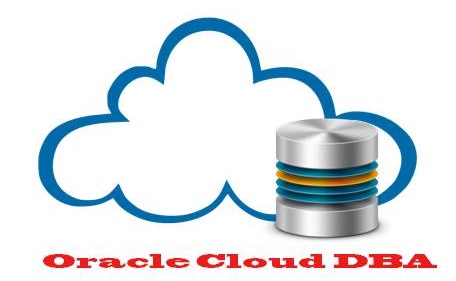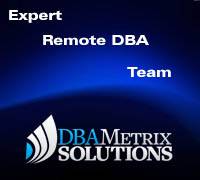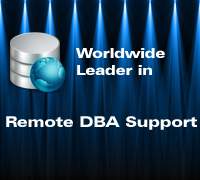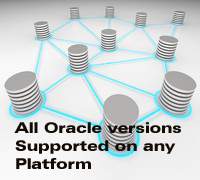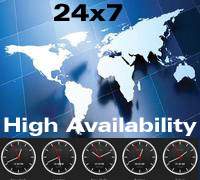Why do Oracle Cloud DBA Role Changes Compare to Traditional DBA?
The Oracle cloud DBA role changes from several aspects when compared with a traditional DBA. Now, what exactly are these aspects is the zest of this article. It is known that cloud, except the overhyped word, is someone else’s computer. Or, it refers to somewhere you can go only through the internet. This also means that you have only remote connectivity and not physical hands-on access to files, your documents on the hard disk and so on. You cannot just lock the hard disk away in your cabin for security. Thus, things have to be performed in a different manner. The role of an Oracle cloud DBA stems from the very basics of operating a computer, directly vs. remotely. That is traditional DBA vs. cloud DBA.
It Is Evolving with Great Pace:
Before we delve deep into the roles, and the exact aspects of the same, it is a good idea to let you know that “those very aspects” are even evolving with time. At a much faster pace than it was some 20 years back. Though the history of early database systems can be traced way back to 1960s, this part of the information is more relevant for the role of a Traditional DBA. Some effective milestones in that line were in 1970 and 1990s when the role of traditional DBA became simpler, while the big computers did the hard work behind the screen and keyboard.
We shall get back to this in a moment, and put some striking points that were commonplace for a traditional DBA for 3 decades or so.
Role of Traditional DBA:
Compared to a modern DBA, you can find the role of a traditional one listed in bullets in almost any old textbook on database systems. At a very high and abstract level, they are distinguished as below.
- You design, install and configure the database systems.
- You do general maintenance, primarily hardware, like upgrades, backup, and recovery.
- You take care of security, with round the clock monitoring, manually.
- You assist others in the same.
- You manage backing up and recovery and deploy disaster management plan.
What is the Cloud? What are Cloud Services?
The first part of the question has already been answered above. But, what are the cloud services that have made the DBA role today a lot different from those days? As we shall find out, it has become more of a software-type than hardware-type. If you just want to explain it using two words, those will be it.
Since you are now accessing remotely a shared computing space via a third-party vendor, there are a lot of security concerns. This current technology-driven approach is shifting the way organizations build and deploy software to run their businesses. For example, all your accounts are online as a piece of code. There is no existence, physically of anything you own. This has brought numerous advantages and has resulted in restructuring on the services required of engineers, most importantly DBAs.
A few aspects, all software-related, are scalability, security, fault tolerance, replication using the cloud. These are few of “those aspects” that have changed the role of Oracle cloud DBA compared with their counterparts from the 1990s.
Core Responsibilities & Diversification of DBaaS DBA:
In cloud environment, DBaaS stands for Database as a services. Oracle database available as services in cloud platform. Thus DBA is called as DBaaS DBA or Oracle Cloud DBA.
The role of a modern, Oracle cloud DBA is certainly not restricted to mere database administration, as the abbreviation stands for. They are doing all sorts of work relating to database management, and organize the unimaginable size of data produced profusely and constantly day and night. As DBaaS DBA or Oracle Cloud DBA you need to choose platform, operating system, resources, hardware and diskspace where you are going to install database. It means you need to deep study of your requirement with meeting with your application teams, network teams, system administrator team, security teams and storage administrator teams. So far that some of these skills even include cost and vendor management. As a database professional, an Oracle cloud DBA your role is also to take care of disaster recovery and keeping the performance of these database systems up and running.
Which Vendor? What Budget?
The first thing that is required of the DBA is to understand the exact needs of their organization and select a third-party vendor that is the best tradeoff between budget and services, without sacrificing the quality and security. As you can see, it is already a big deal by now taking so many factors into account, and coming up with the right answer. Everything demands proper infrastructure and that too, in a certain time period. In the same budget, the DBAs responsibility is to keep up with current services and think of the future possible needs of the organization.
Security Tradeoff:
One thing that cannot be ignored is the astoundingly high stake at software security today, compared to that of the 1990s. If you are an Oracle cloud DBA professional, you must be aware of all the threats to your organization and take steps to mitigate them at the earliest.
Since protecting sensitive data across such highly distributed and shared systems is a big challenge, there is a tradeoff between costs. The DBAs have to constantly keep exploring internal and external threats and comply with the standards that the organization must abide by legally. The very nature of the cloud means delivery through the internet can be spied upon, tracked, breached and hijacked.
Exclusive and professional remote Database services offered by Dbametrix with strong response time and high availability for important and critical Oracle databases. Expert remote dba team of Dbametrix is having wide experience to manage large and critical database with quick problem resolution.
Dbametrix is world wide leader in remote dba support. Expert remote DBA team of Dbametrix is offering high quality professional Oracle DBA support and Remote DBA Services with strong response time to fulfill your SLA. We are offering DBaaS DBA support with very lost cost remote dba plans.Contact our sales department for more information.

